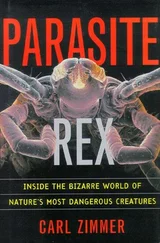The Beagle is remembered today only because of Darwin’s experience on board the ship. But if you tried to tell that to the sailors rolling barrels aboard they might have laughed without even a glance at the young man who was pretending to know what he was doing.
“My chief employment,” Darwin wrote to his family from Plymouth, “is to go on board the Beagle and try to look as much like a sailor as ever I can. I have no evidence of having taken in man, woman or child.”
In Search of Beetles and Respectability
Darwin had grown up along the banks of the Severn River in Shropshire, collecting pebbles and birds, completely unaware of the fortunes that made his life pleasant. His mother, Susannah, came from the wealthy Wedgwood family, which made china of the same name. Although his father, Robert, came from less wealthy stock, he built up a fortune of his own by working as a doctor and discreetly lending money to his patients. He eventually became rich enough to build his family a large house, the Mount, on a hillside overlooking the Severn.
Charles and his older brother Erasmus had the close, practically telepathic connection that brothers sometimes have. As teenagers they built themselves a laboratory at the Mount where they would dabble in chemicals and crystals. When Charles was 16, Erasmus went to Edinburgh to study medicine. Their father sent Charles along with him to keep Erasmus company, and ultimately to go to medical school as well. Charles was happy to tag along, for the company of his brother and for the adventure.
When they arrived in Edinburgh, Charles and Erasmus were shocked by the squalor and spectacle of the city. These two boys, raised in the genteel countryside where Jane Austen set her novels, encountered slums for the first time. Politics raged around them as Scottish nationalists, Jacobites, and Calvinists jostled over church and country. At Edinburgh University they faced a rabble of rough students shouting and shooting off pistols in the middle of lectures. Charles and Erasmus recoiled into each other’s company, spending their time talking together, walking along the shore, reading newspapers, and going to the theater.
Charles realized very quickly that he hated medicine. The lectures were dreary, the dissected corpses a nightmare, the operations—often amputations without anesthesia—terrifying. He kept himself busy with natural history. But although Charles knew that he could not become a doctor, he had no appetite for standing up to his father. When he came home to the Mount for the summer, he avoided bringing up the matter, spending his days instead shooting birds and learning how to stuff them. He would continue to avoid confrontations for the rest of his life.
Over the summer Robert Darwin decided to send Erasmus to London to continue his studies. Charles returned to Edinburgh alone in October 1826, with only his natural history to distract him from a life he had come to hate. He became friends with naturalists in Edinburgh, including a zoologist named Robert Grant, who took him under his wing. Grant had been trained as a doctor but had given up his practice to become one of the country’s great zoologists, studying sea pens, sponges, and other creatures that scientists of the time still knew almost nothing about. Grant proved a good mentor. “He was dry and formal in manner, but with much enthusiasm beneath this outer crust,” Darwin later wrote. He showed Darwin the tricks of zoology: how, for instance, to dissect marine creatures in seawater under a microscope. And Darwin in turn proved to be a bright apprentice; he was the first person ever to see the male and female sex cells of seaweed dance together.
In 1828, at the end of his second year in Edinburgh, Darwin went back home to the Mount. He could no longer avoid his father, and he finally confessed that he couldn’t become a doctor. Robert Darwin was furious. He told Charles, “You care for nothing but shooting, dogs and rat-catching and you will be a disgrace, to yourself and all your family.”
Robert was not an ogre of a father. His son would become a rich man, and Robert wanted him to be more than idly rich. If Charles wouldn’t become a doctor, Robert could imagine only one other respectable profession that was still left open to his youngest son: the clergy. The Darwins were not particularly religious—Robert Darwin even privately doubted whether God existed—but in Britain religion brought security and respectability. Although Darwin had never felt any great passion for the church, he agreed, and the following year he went to Cambridge for a degree in theology.
Darwin did not turn out to be a hardworking student; he was less likely to be studying the Bible than hunting for beetles. He searched for the insects on the heaths and in the forests; to find the rarest species, he hired a laborer to scrape moss off trees and muck out the bottom of barges filled with reeds. And as for the future, Darwin wasn’t dreaming of a parsonage but of leaving England altogether.
He read about Alexander von Humboldt’s travels through the Brazilian rain forest and over the Andes, and he wanted to travel as well, to discover something about how nature worked. Humboldt had praised the Canary Islands, with their dense lowland jungles and rugged volcanic flanks, and Darwin began scheming an expedition. He found a Cambridge tutor, Marmaduke Ramsay, who was willing to travel to the Canaries with him. He honed his skills at geology by working as an assistant to the Cambridge geologist Adam Sedgwick for several weeks in Wales. When he returned from the expedition, ready to start making serious preparations for his trip to the Canary Islands, he got a message. Marmaduke Ramsay was dead.
Darwin was devastated. He traveled home to the Mount with no idea what to do. But when he arrived, there was a letter from another of his professors at Cambridge, John Stevens Henslow. Henslow wanted to know whether Darwin cared to take a trip around the world.
The Lonely Captain
The offer came from Robert FitzRoy, captain of the Beagle. FitzRoy was charged with two missions: to use a new generation of precisely engineered clocks to navigate a trip around the world and to map the coastlines of South America. Argentina and its neighbors had just been freed from Spain’s control, and Britain needed to chart the waters as it set up new channels of trade.
Although this would be FitzRoy’s second mission as captain of the Beagle, he was only 27 years old. He was the product of an aristocratic family with vast estates in England and Ireland, and at the Royal Naval College he had been a sharp student of mathematics and science. He had served in the Mediterranean and in Buenos Aires, and in 1828, at age 23, he became captain of the Beagle. The previous captain had gone mad trying to survey the wave-battered islands of Tierra del Fuego, as his crew developed scurvy and his bad maps led him in desolate circles. “The soul of man dies in him,” the captain had written in his logbook, and then shot himself.
FitzRoy was a jumble of propriety and passion, of aristocratic tradition and modern science, of missionary zeal and solitary desperation. While he was on his first mission as captain of the Beagle, surveying Tierra del Fuego, one of his boats was stolen by Indians. FitzRoy retaliated by capturing hostages, most of whom escaped. Those who remained behind, two men and a girl, seemed happy to stay on board, and FitzRoy suddenly decided that he would take them to England, educate them, and bring them back to convert their fellow Indians. On the way home he picked up a fourth Indian, whom he bought with a mother-of-pearl button. Back in England, one of the Indians died of smallpox, but FitzRoy planned to civilize the other three and return them to Tierra del Fuego on his second voyage, along with a missionary who would stay behind to educate the tribes.
Читать дальше












